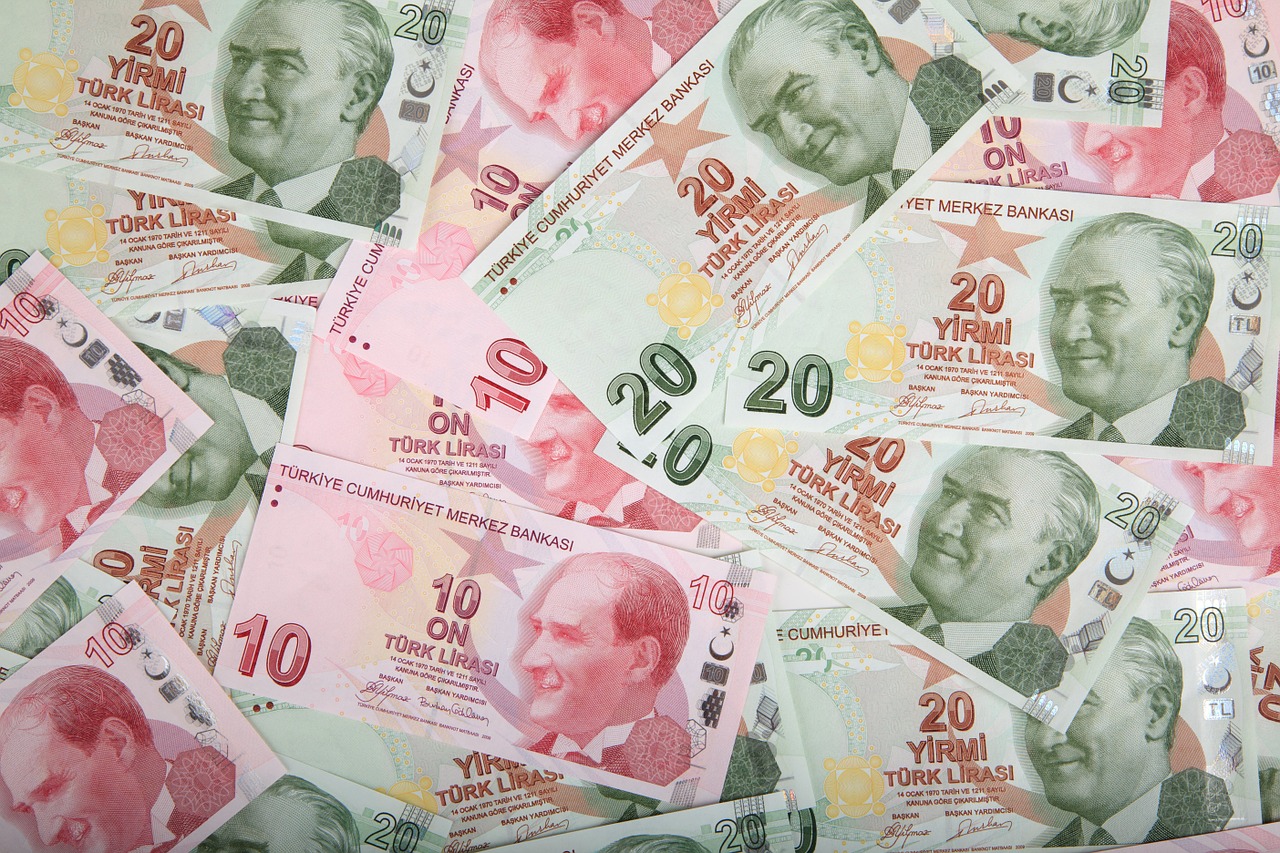
The financial markets sound the alarm: Turkey is slipping deeper into the lira crisis. The high inflation and the dispute with the US are cause for concern. Now the rating agency Fitch has its say – and what she has to say should not be well received in Istanbul.
If you believe the rating agency Fitch, the situation is serious: The experts have again dealt with the creditworthiness of Turkey and confirm their BB rating. This means that Turkish bonds are a speculative investment: Should the situation worsen, losses could be expected. And that threatens the analysts, because they also stick to their negative outlook.
The experts emphasize that domestic political and geopolitical risks could continue to weigh on the rating. In the current year, the economy will shrink by 1.1 percent, so the forecast. Only in 2020 does Fitch expect a growing economy again.
More Course Information on Turkish Lira in Dollars
Permanent conflict potential
Investors are alarmed by the political and economic situation in Turkey. Uncertainty and instability are particularly displeasing to financial market players, as they increase investment risk. This is shown by the rising yields on Turkish government bonds, but this is particularly evident in the price of the Turkish lira, which has lost a lot of its share of the dollar since the beginning of the year.
Domestically, Turkey is currently struggling with the aftermath of the local elections on 31 March. The government and Turkish President Recep Tayyip Erdogan suffered a setback when they lost the two cities of Istanbul and Ankara to the opposition. The governing party AKP refuses to recognize the defeat.
In foreign policy too, the list of Erdogan’s problems is impressive. Turkey is in constant crisis with the United States, partly because the NATO country wants to buy Russian air defense systems against US resistance and at the same time wants to use American F-35 fighter jets. The US fears that Russia could get so sensitive data. Contradictory positions in the Syrian conflict and the US sanctions against Iran also offer constant potential for controversy.
The lira weakness has consequences
The lira is therefore currently in descent again. This is bad news for Turkish companies with foreign debt as it makes debt service more expensive. The living costs of the Turkish population are also being driven upwards by the weak lira.
To cope with the rise in the cost of living, the government set up urban stalls for vegetables in the major cities of Ankara and Istanbul, where citizens can buy tomatoes, onions and potatoes at reduced prices.
„If the devaluation trend of the lira continues, the inflation outlook will continue to cloud and the burden of high foreign currency debt will increase,“ writes Commerzbank analyst Tatha Ghose.
Inflation remains high
The recent inflation figures do not provide an all-clear. According to current data, inflation fell from 19.7% in May to 19.5% in April – but that is still far too high. In October 2018, she had climbed to a record 25.2 percent.
The Turkish central bank, whose independence in the financial markets was often speculated, had raised the key interest rate to 24 percent in September, thereby providing at least some relief from the inflation rate.



